The Historical Significance of French Music on World Music
French music has played a significant role in shaping the landscape of world music. With its rich cultural heritage and multifaceted influences, French music has captivated audiences worldwide for centuries. From the classical compositions of iconic composers to the infectious rhythms of modern genres, the influence of French music can be heard across various musical styles and traditions.
One of the most notable contributions of French music to the world is in the realm of classical music. France boasts a long and prestigious history of classical composers who have left an indelible mark on the genre. From luminaries like Claude Debussy and Maurice Ravel to influential Baroque composers such as Jean-Baptiste Lully and François Couperin, French classical music has set the benchmark for elegance, sophistication, and innovation.
The influence of French classical music extends far beyond the borders of France. Composers and musicians from all over the world have been inspired by the works of French masters, incorporating elements of their style into their own compositions. The ethereal melodies and impressionistic harmonies of Debussy, for instance, have had a profound impact on composers from a variety of genres, including film music and contemporary classical music.
In addition to classical music, French chanson has also made its mark on the global music scene. Chanson refers to a French song style that emerged during the Middle Ages and has evolved over time. With its poetic lyrics and emotive melodies, chanson has become synonymous with French music. Artists like Edith Piaf, Jacques Brel, and Charles Aznavour have popularized the genre internationally, infusing it with their own unique interpretations and making it accessible to a global audience.
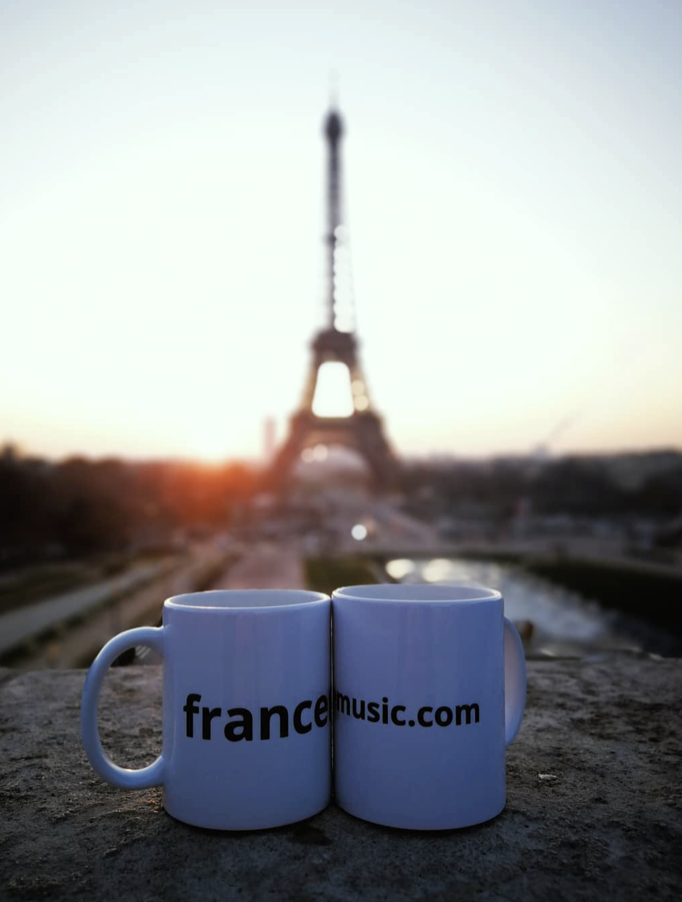
The influence of French chanson can be heard in various genres of world music. For instance, the Latin American music scene has incorporated elements of French chanson into their own traditional music, resulting in a fusion of cultural influences. Similarly, artists from other European countries have drawn inspiration from French chanson, blending it with their own musical traditions to create a distinct hybrid sound.
French jazz is another genre that has left a lasting impression on world music. The influence of French jazz can be traced back to the 1920s when American jazz musicians, such as Sidney Bechet and Josephine Baker, found a welcoming audience in France. This led to a vibrant jazz scene in Paris, with French musicians embracing the genre and adding their unique flair to it. Today, French jazz continues to thrive and has gained international acclaim, with artists like Django Reinhardt and Stéphane Grappelli becoming legendary figures in the genre.
The impact of French jazz on world music cannot be overstated. It has influenced the development of jazz in various regions, including Africa, the Caribbean, and even the United States. Jazz artists from around the world have borrowed from the French jazz tradition, incorporating its melodic sensibilities and improvisational techniques into their own compositions.
French music has had a profound impact on world music. Whether through classical compositions, chanson, or jazz, French musicians and composers have left an indelible mark on the global musical landscape. Their influence can be heard in various genres and traditions, making French music an essential part of the global cultural tapestry.
The Influence of French Classical Music on World Music
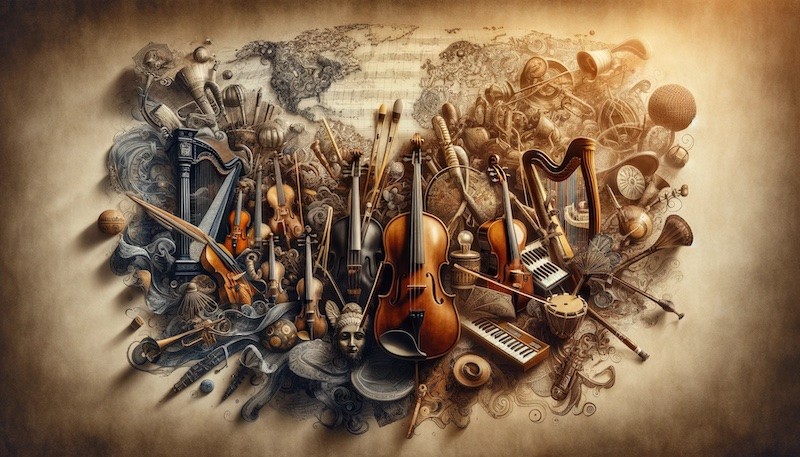
French classical music has left an indelible mark on the global music landscape, influencing composers and musicians across diverse genres and continents. From the Baroque era to the present day, French composers have played a pivotal role in shaping the evolution of classical music, ballet, and film scores, while fostering cross-cultural collaborations that continue to enrich the world of music.
The Baroque era witnessed the emergence of French musical luminaries like Jean-Baptiste Lully and François Couperin. Lully’s groundbreaking use of the French overture and his establishment of French opera left an enduring imprint on European composers, setting a new standard for grandeur, elegance, and intricate ornamentation.
The Romantic era saw the rise of Hector Berlioz and Claude Debussy, who boldly challenged the boundaries of classical music with their innovative harmonies and unconventional forms. Berlioz’s symphonic works, epitomized by his renowned “Symphonie fantastique,” showcased his daring approach to orchestration, while Debussy’s impressionistic masterpieces, such as “Clair de Lune” and “Prelude to the Afternoon of a Faun,” captivated audiences with their ethereal and evocative soundscapes.
French classical music also played a crucial role in the development of ballet, with composers like Charles Gounod, Camille Saint-Saëns, and Maurice Ravel creating iconic ballet scores that became synonymous with the art form. Ravel’s “Boléro” and Saint-Saëns’ “Danse Macabre” continue to be performed and revered by ballet companies worldwide.
Beyond the confines of classical music, French composers have also made significant contributions to other genres, particularly in the world of film music. Georges Delerue, a renowned composer and conductor, left a lasting legacy on film scoring, collaborating with directors François Truffaut and Jean-Luc Godard to shape the cinematic sound of the French New Wave. His influence extended to composers like Michel Legrand and Alexandre Desplat, who continue to carry the torch of French cinematic music.
French classical music has also transcended cultural barriers, inspiring musicians from diverse backgrounds to explore and incorporate its rich tapestry into their own creative expressions. Renowned cellist Yo-Yo Ma, for instance, has seamlessly integrated French classical compositions into his repertoire, bridging the gap between classical traditions and contemporary interpretations.
French chanson has a long and rich history, evolving over centuries into a unique genre that has made a significant impact on world music
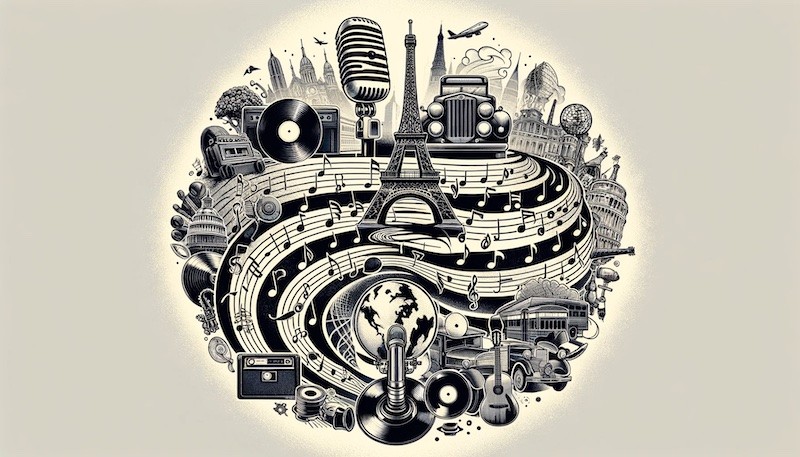
- Medieval French chanson: During the Middle Ages, French chanson was predominantly written and performed by troubadours and trouveres, who traveled across Europe, spreading their musical tales. Their compositions were greatly influenced by the Trouveres traditions of Northern France and the Troubadours traditions from the South. Their songs reflected topics such as courtly love, heroic deeds, and political commentaries, making chanson a vital vehicle for storytelling and social commentary.
- Renaissance French chanson: In the Renaissance period, French chanson experienced a major transformation. The influence of composers like Guillaume Dufay and Josquin des Prez led to the development of polyphonic chanson. Polyphony, the art of combining multiple independent melody lines, introduced a new complexity and sophistication to French chanson, which resonated with audiences across Europe. The popularity of polyphonic chanson highlighted the immense talent and creativity of French composers during this era.
- 20th-century French chanson: Moving into the 20th century, French chanson experienced yet another evolution. The rise of recording technology and the growth of the entertainment industry allowed chanson to reach a wider audience. Artists such as Edith Piaf and Charles Trenet became iconic figures in French music, captivating listeners with their passionate performances and emotional lyrics. Their music often reflected the sentiments and experiences of the French people during times of war and social change.
- Influence on Latin American music: French chanson has also had a profound influence on various genres of world music. One notable example is the influence of chanson on Latin American music, particularly in countries like Argentina and Chile. Artists like Violeta Parra and Mercedes Sosa drew inspiration from the storytelling aspect of chanson, incorporating it into their own music and contributing to the development of nueva canción, a genre that combines folk and political commentary.
- Influence on American folk music: In addition to Latin America, French chanson has also played a role in the evolution of American folk music. Artists such as Joan Baez and Bob Dylan have cited French chanson as an inspiration for their songwriting and storytelling styles. The introspective and poetic nature of chanson has had a lasting impact on American folk music, creating a connection between the two genres that continues to be recognized today.
The evolution of French chanson has had a significant influence on world music. From its roots in medieval troubadour traditions to its impact on Latin American and American folk music, chanson has captivated audiences with its storytelling and emotional depth. French chanson continues to be celebrated and appreciated worldwide, highlighting its enduring place in the tapestry of global music.
La influencia de la música francesa en las músicas del mundo
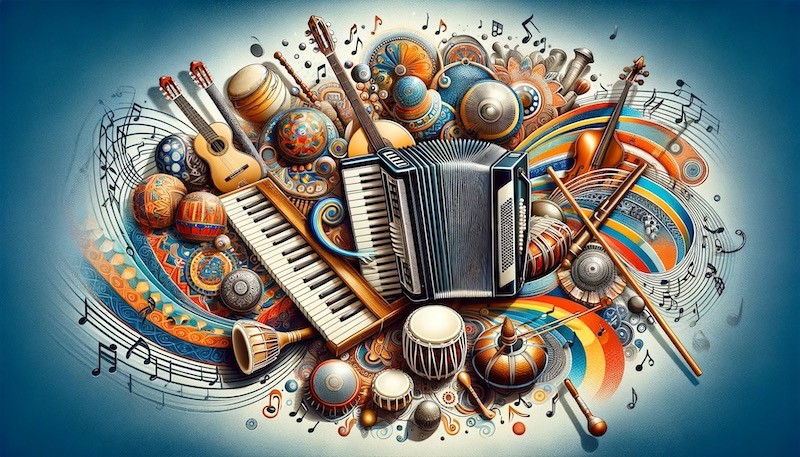
French music has played a significant role in shaping and influencing world music, particularly in the realm of jazz. Jazz, which originated in the United States, found a unique connection with French musicians and audiences, leading to a fruitful exchange of musical ideas and styles. This cultural intermingling has not only enriched the jazz scene in both countries but has also influenced artists globally.
One of the key figures who bridged the gap between American jazz and French music was the legendary jazz guitarist, Django Reinhardt. Reinhardt, of Romani descent, is considered one of the greatest guitarists of all time and a pioneer of Gypsy jazz. His virtuosic guitar playing and unique blend of American jazz, French musette, and Romani music captivated audiences around the world. Reinhardt’s collaborations with American jazz musicians such as Duke Ellington and Benny Carter helped popularize his style and gave birth to the influential genre known as “gypsy jazz.”
French musicians also embraced the improvisational nature of jazz and incorporated it into their own music. The “Manouche” style, inspired by Reinhardt, became an essential part of the French music scene. French jazz musicians, such as violinist Stéphane Grappelli and saxophonist Barney Wilen, played a vital role in furthering the reputation of French jazz on the international stage.
Beyond jazz, French music has also made significant contributions to world music through its classical tradition. French composers, such as Claude Debussy and Maurice Ravel, revolutionized classical music with their innovative harmonies and impressionistic compositions. Their works, such as Debussy’s “Clair de Lune” and Ravel’s “Boléro,” continue to be celebrated and performed by musicians worldwide.
French chanson, a genre that emerged in the early 20th century, also left a lasting impact on world music. Artists like Édith Piaf and Charles Aznavour became international icons, their heartfelt performances and evocative lyrics resonating with audiences globally. The influence of French chanson can be seen in the works of artists such as Leonard Cohen, Tom Waits, and even contemporary pop musicians.
Besides these individual contributions, French music festivals have played a crucial role in spreading French musical culture worldwide. Festivals like the Montreux Jazz Festival and the Festival d’Avignon attract artists and music enthusiasts from around the globe, providing a platform for both local and international musicians to showcase their talent. These festivals foster cultural exchange, enabling artists to connect and draw inspiration from various musical traditions.
French music has had a profound influence on world music, particularly through its contributions to jazz, classical music, chanson, and music festivals. The cultural exchange between French and international musicians has enriched the global music scene, creating a diverse and dynamic musical landscape for audiences worldwide to enjoy.
The Influence of French Music Festivals on World Music

French music has significantly impacted world music, particularly in jazz. Originating in the United States, jazz resonated with French musicians and audiences, leading to a dynamic exchange of musical styles. This cross-cultural interaction has enhanced the jazz scenes in both countries and globally.
Django Reinhardt, a Romani jazz guitarist, stands as a pivotal figure in merging American jazz with French music. Renowned as one of history’s finest guitarists, Reinhardt pioneered Gypsy jazz, fusing American jazz, French musette, and Romani sounds. His collaborations with American jazz icons like Duke Ellington and Benny Carter popularized this genre and birthed “gypsy jazz.”
French musicians have also adapted jazz’s improvisational essence, notably in the “Manouche” style, influenced by Reinhardt. French jazz artists such as violinist Stéphane Grappelli and saxophonist Barney Wilen significantly contributed to French jazz’s international prestige.
In the classical realm, French composers like Claude Debussy and Maurice Ravel brought innovative harmonies and impressionistic elements to classical music. Their compositions, including Debussy’s “Clair de Lune” and Ravel’s “Boléro,” are globally celebrated.
The early 20th-century French chanson genre also left an indelible mark on world music. Artists like Édith Piaf and Charles Aznavour, known for their emotive performances and poignant lyrics, gained international fame. The influence of French chanson extends to various artists, including Leonard Cohen and Tom Waits, and continues in contemporary pop music.
Moreover, French music festivals, such as the Montreux Jazz Festival and the Festival d’Avignon, have been instrumental in promoting French musical culture globally. These events draw artists and enthusiasts worldwide, fostering cultural exchanges and inspiring diverse musical traditions.
French music’s influence on jazz, classical music, chanson, and music festivals has profoundly shaped the global music landscape. The interaction between French and international musicians has created a rich, varied musical environment for audiences everywhere.
He aquí otros datos interesantes sobre la música francesa:
- Francia tiene la segunda industria musical del mundo, después de Estados Unidos.
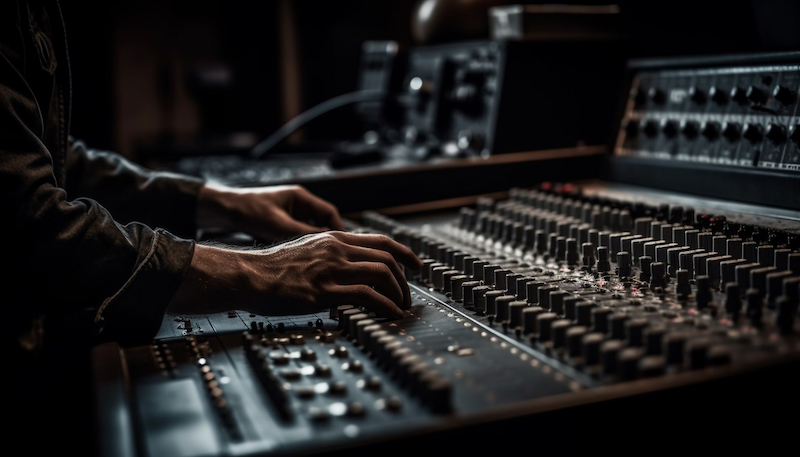
- Francia alberga la Ópera de París, uno de los teatros de ópera más famosos del mundo.
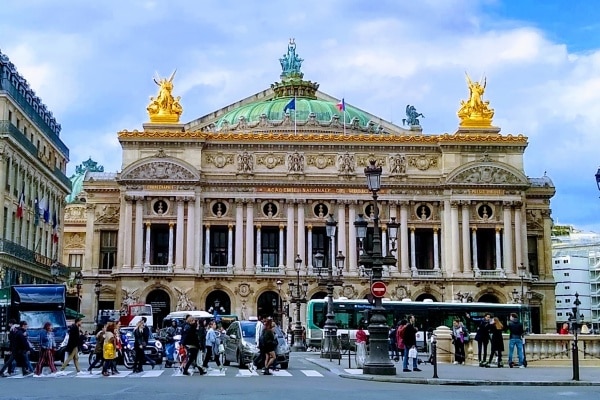
- Francia acoge el Festival de Cannes, uno de los más importantes del mundo.

- En Francia se celebra el Festival de Jazz de Montreux, uno de los más importantes del mundo.
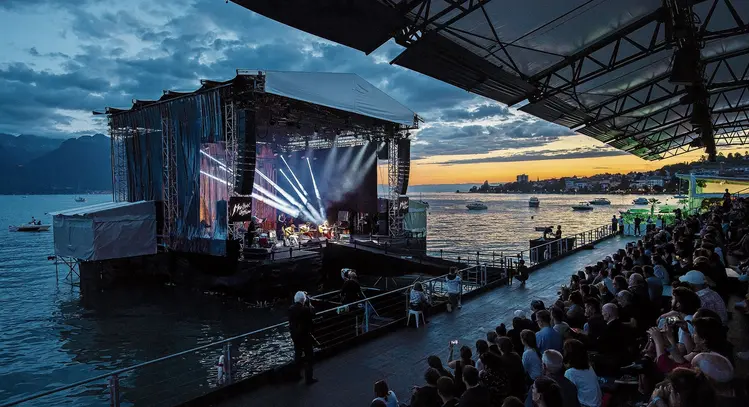
Algunas melodías muy Conocidas
- “La Marseillaise” – The French National Anthem
- “Claire de Lune” – Claude Debussy
- “Boléro” – Maurice Ravel
- “The Rite of Spring” – Igor Stravinsky
- “I’ve Got Rhythm” – George Gershwin
- “Charleston” – The Original Dixieland Jass Band
- “La Vie en Rose” – Edith Piaf
- “Non, Je Ne Regrette Rien” – Edith Piaf
- “L’Amour Est Bleu” – Jeanette Biedermann
- “Amelie” – Yann Tiersen
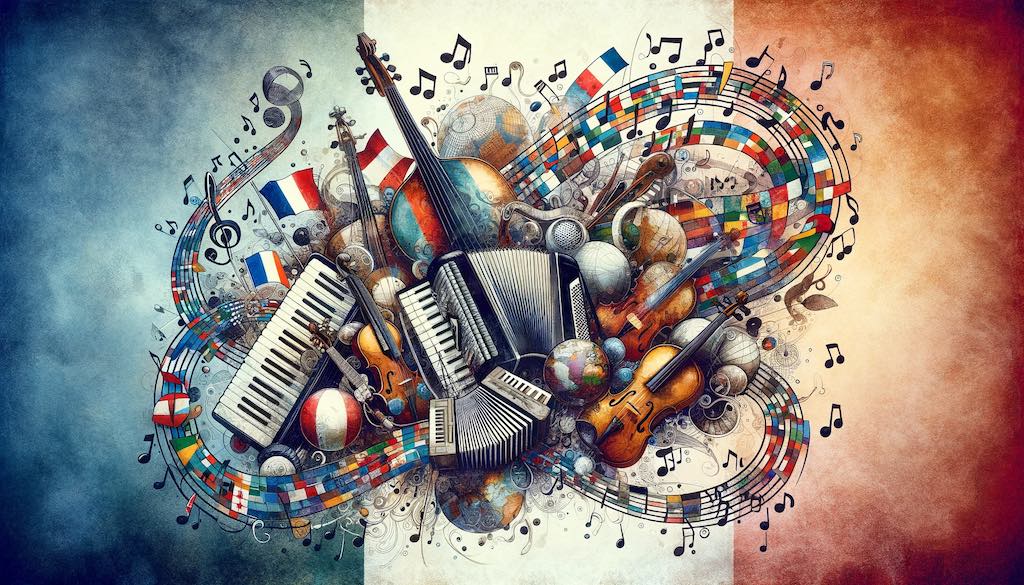

Pingback: History of French Music | France Music
Pingback: Exploring the Rich Legacy of French Music: From Classical Roots to Modern Innovations